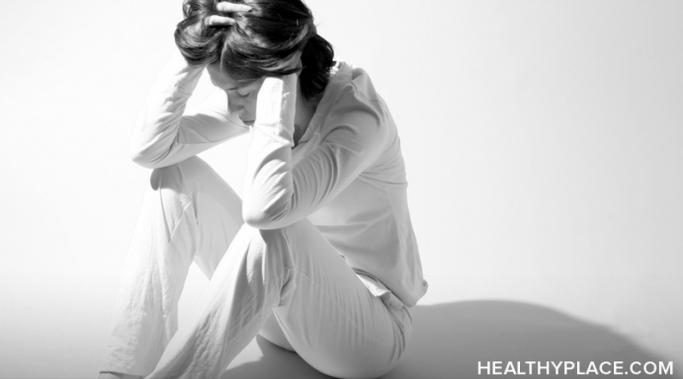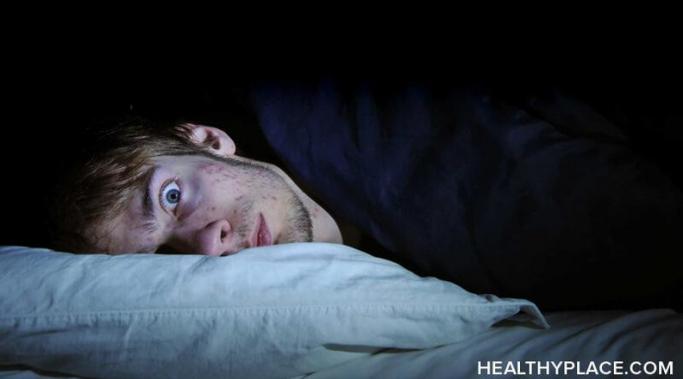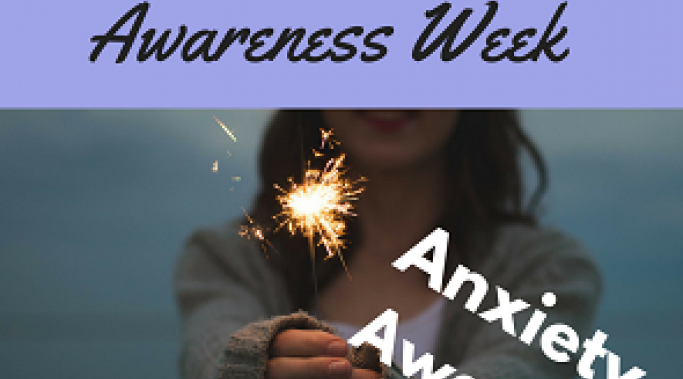People who live with anxiety and panic know that panic and anxiety attacks are real. Unfortunately, not everyone understands that panic attacks and anxiety attacks are legitimate physical and emotional experiences. Recently, I was watching a show in which a character’s doctor informed him that he had had a panic attack. When this character told his sister, she exclaimed in disbelief, “Are those a thing? I thought panic attacks were something made up by celebrities for attention.” To help increase understanding, I offer an explanation for why panic attacks and anxiety attacks are real.
Effects of Anxiety
When anxiety says you can’t _____ (fill in the blank with whatever it is you think you can’t do), it’s frustrating, and it can be tempting to give up. Why bother trying to move forward when anxiety is screaming at you, attempting to convince you that you can’t do something? There are important reasons we should bother moving forward despite being anxious and believing we can’t do something: We are living our lives, we have goals, passions, and purpose, and anxiety is wrong (12 Lies Anxiety Tells You). You can respond to anxiety to take away its voice. You can respond when anxiety says you can't do something.
Anxiety and exhaustion frequently go hand in hand. Feeling anxious day after day is exhausting, and when we’re so worn out, anxiety worsens because managing it becomes more difficult. The fatigue of anxiety often feels different than the exhaustion of depression. Whereas depression can zap people of energy and motivation and make it difficult to be up and about, anxiety can put people on almost constant alert, leading to a sensation often described as tired and wired. Increasing awareness of anxiety and exhaustion can help you take measures to feel better physically, mentally, and emotionally.
Anxiety has a way of ruining relationships, making us feel unlucky in love. As anyone who has ever had a relationship involving two people and an annoying third wheel—anxiety—knows, love can be hard to feel and enjoy when anxiety gets in the way. Take heart: there are things you can do to keep anxiety from ruining your relationship.
If you find yourself anxious in many different situations, especially those that relate to your performance, behavior, or relationships with others, you might consider the possibility that you have unrealistically high standards for yourself. It’s not uncommon for people to hold themselves to high standards, and doing so can be motivating. Impossibly high standards, though, can make people anxious and interfere in their lives (How Not to Expect Too Much from Yourself). If your own high standards are making you anxious, there’s a way to reclaim your life.
The notion that it's possible to spot a person with anxiety is mortifying to the tens of millions of people living with anxiety disorders. With its physical side effects that can affect every system of the body and its strong emotional symptoms, many people experiencing anxiety have an added worry that their discomfort is evident to the world. Surprisingly, this guide for spotting a person with anxiety just might make anxiety sufferers feel a little bit better.
Anxiety awareness is important all the time, but during Mental Illness Awareness Week, a special spotlight shines on mental illness, including anxiety disorders. Such a spotlight brings light and warmth to anxiety, which is so often swept away into dark corners. Read on for information that can help increase awareness of anxiety and anxiety disorders and lessen some of the frustrations that come with a lack of understanding.
Worrying about mistakes goes hand-in-hand with anxiety (Worry: How Much is Too Much?) and we need to learn to stop worrying over spilt milk. As irksome as they can be, mistakes are simply events, incidents in our lives, but they don’t need to become our lives, taking over our wellbeing. How we react to mistakes affects our mental health. To reduce anxiety, including generalized anxiety disorder, it's important to stop worrying about mistakes.
The effects of anxiety are your starting point for healing, even though they are many and miserable (These Awful Effects of Anxiety Must Stop). Anxiety affects us physically, mentally, and emotionally. Anxiety can disrupt our lives in profound ways, preventing us from being who we want to be and doing what we want to do. Anxiety exists on a spectrum from mild to severe, but whether it is a disturbance or a disorder, the effects of anxiety are negative and far-reaching. That said, they're good, too, for the effects of anxiety are a starting point for healing.
Anxiety has many different moods; frustratingly, anxiety isn’t a single, simple concept. No one can count on it to be anything other than disruptive and erratic. Perhaps you’ve experienced an all-too-common situation. You’re working hard to manage anxiety. Your anxiety symptoms have lessened and your life feels less restricted. Then, seemingly without warning, bam. Anxiety strikes again, and this time it feels worse somehow. This is a normal experience for people living with anxiety because anxiety has different moods. What are the different moods of anxiety and how can you tame them?









